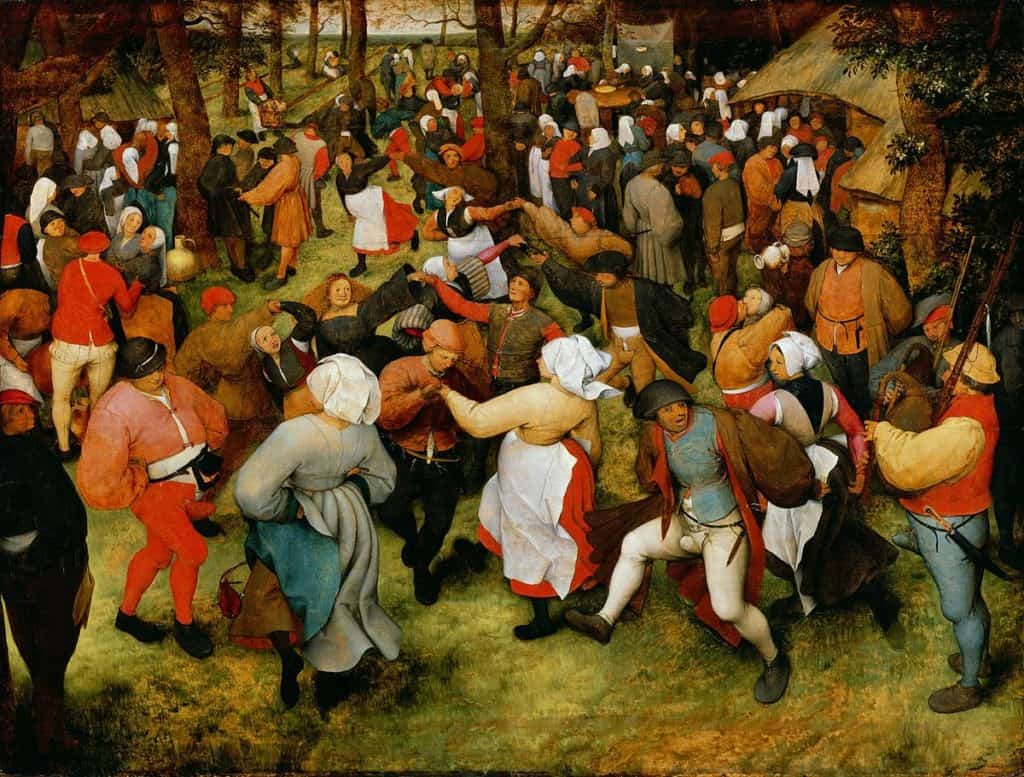It was a young woman who started it. She began to dance ‘fervently’ in a street in Strasbourg in France, and before anyone knew it, a group of other young women had joined in.
In what came to be known as the Dance Epidemic, or Dancing Plague, of 1518, up to 400 people took to dancing for days. It must at times have resembled a modern televised danceathon, although I’m more than 85% certain television hadn’t been invented yet.
This outbreak of unexplained cavorting lasted for such a long time that doctors eventually intervened, and a troupe of afflicted performers was sent hobbling to hospitals, where presumably their feet were treated for exhaustion. Line dancing will do that to your tootsies, take it from a man who still has a rhinestone cowboy outfit in his wardrobe.
It had all happened once before, when thousands danced uncontrollably, in Europe and Africa, in the 14th century. It was then known as St Vitus’ Dance, and if it hadn’t killed thousands of people in Germany and Madagascar, Vitus might have retained his reputation as the merry patron saint of dancers and entertainers.
He was also said to protect against oversleeping, which would be useful after a long spell of boogying in a nightclub, followed by an early start in the operating theatre next day. Although I’m at least 20% sure that nightclubs came into existence much later.
What caused these outbreaks involving otherwise normal townsfolk? And was there a treatment, or a cure? Opinions vary, the way opinions often do. Once upon a time, the lightning-fast footwork of the Italian tarantella dance was the symptom of a terrifying malady thought to be caused by a tarantula bite.
‘Tarantism’ was a psychological illness characterized by an extreme impulse to dance, roughly the equivalent of 3 pints of strong lager and 2 pina coladas. Although amounts, like opinions, could differ.
And what was the treatment? The prescription was music, of all things, although the only lyric I can think of, that might have helped, is “I won’t dance, don’t ask me!” But I’m almost 100% convinced this was before Fred Astaire met Ginger Rogers.
And of course, one bite from a spider or a snake couldn’t make a whole town or village dance, but an alternative theory exists, as alternative theories frequently do. It has been suggested dancing mania was caused by a fungus called ergot, which can be ingested by eating bread. What a vile slander on the staff of life!
I much prefer another possibility, that dancing epidemics were brought on by the extreme stress of living in the Middle Ages. The only question thrown up by that explanation — manic dancing caused by the taxing times you live in — is this: why aren’t we all dancing like dervishes right now?





